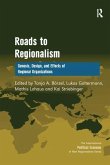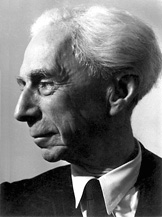SOCIALISM, like everything else that is vital, is rather a tendency than a strictly definable body of doctrine. A definition of Socialism is sure either to include some views which many would regard as not Socialistic, or to exclude others which claim to be included. But I think we shall come nearest to the essence of Socialism by defining it as the advocacy of communal ownership of land and capital. Communal ownership may mean ownership by a democratic State, but cannot be held to include ownership by any State which is not democratic. Communal ownership may also be understood, as Anarchist Communism understands it, in the sense of ownership by the free association of the men and women in a community without those compulsory powers which are necessary to constitute a State. Some Socialists expect communal ownership to arrive suddenly and completely by a catastrophic revolution, while others expect it to come gradually, first in one industry, then in another. Some insist upon the necessity of completeness in the acquisition of land and capital by the public, while others would be content to see lingering islands of private ownership, provided they were not too extensive or powerful. What all forms have in common is democracy and the abolition, virtual or complete, of the present capitalistic system. The distinction between Socialists, Anarchists and Syndicalists turns largely upon the kind of democracy which they desire. Orthodox Socialists are content with parliamentary democracy in the sphere of government, holding that the evils apparent in this form of constitution at present would disappear with the disappearance of capitalism. Anarchists and Syndicalists, on the other hand, object to the whole parliamentary machinery, and aim at a different method of regulating the political affairs of the community. But all alike are democratic in the sense that they aim at abolishing every kind of privilege and every kind of artificial inequality: all alike are champions of the wage- earner in existing society. All three also have much in common in their economic doctrine. All three regard capital and the wages system as a means of exploiting the laborer in the interests of the possessing classes, and hold that communal ownership, in one form or another, is the only means of bringing freedom to the producers. But within the framework of this common doctrine there are many divergences, and even among those who are strictly to be called Socialists, there is a very considerable diversity of schools. Socialism as a power in Europe may be said to begin with Marx. It is true that before his time there were Socialist theories, both in England and in France. It is also true that in France, during the revolution of 1848, Socialism for a brief period acquired considerable influence in the State. But the Socialists who preceded Marx tended to indulge in Utopian dreams and failed to found any strong or stable political party. To Marx, in collaboration with Engels, are due both the formulation of a coherent body of Socialist doctrine, sufficiently true or plausible to dominate the minds of vast numbers of men, and the formation of the International Socialist movement, which has continued to grow in all European countries throughout the last fifty years.
Hinweis: Dieser Artikel kann nur an eine deutsche Lieferadresse ausgeliefert werden.
Hinweis: Dieser Artikel kann nur an eine deutsche Lieferadresse ausgeliefert werden.









